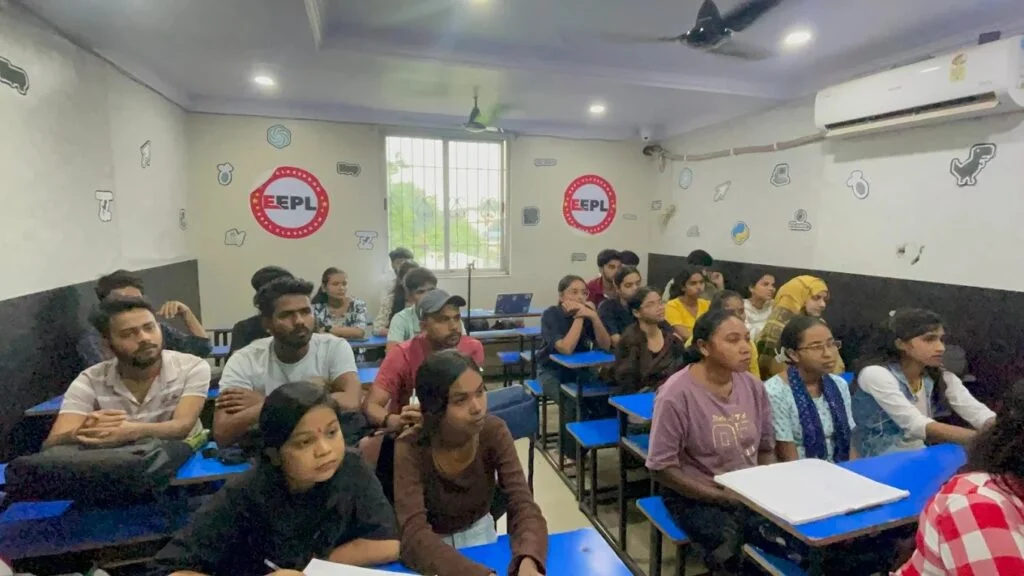Understanding the Basics of Algebra
Algebra serves as a cornerstone in the field of mathematics, particularly for students in Class 11 and 12. To navigate the complexities of algebraic expressions and equations, it is vital to grasp its fundamental concepts. A solid understanding of key terms such as variables, constants, coefficients, and equations is essential before progressing to more intricate topics.
In algebra, a variable represents an unknown value and is often denoted by letters such as x, y, or z. Variables serve as building blocks for formulating expressions and equations. Conversely, a constant is a fixed value that does not change, such as the number 5 or -3. Recognizing the distinction between variables and constants is crucial for interpreting and manipulating algebraic formulas.
Additionally, a coefficient refers to the numerical factor attached to a variable in algebraic expressions. For example, in the expression 3x, the number 3 is the coefficient of the variable x. Understanding coefficients helps students identify the relationship between variables within equations. It is also important to recognize that algebraic expressions often combine variables, constants, and coefficients to depict complex mathematical relationships.
Another fundamental concept in algebra is the equation, which establishes a relationship between two expressions. Equations can be simple, such as x + 2 = 5, or complex, involving multiple variables and operations. Mastering the techniques for solving equations, including isolating variables and balancing both sides, is essential for success in algebra.
Building a strong foundation in these basic concepts paves the way for tackling algebraic challenges and more advanced topics. Students who invest time in understanding variables, constants, coefficients, and equations will find themselves better equipped to handle the demands of algebraic coursework in Class 11 and 12.
Effective Study Strategies for Algebra
Mastering algebra requires a combination of effective study strategies that enhance understanding and retention of key concepts. One of the most impactful approaches is active learning, which encourages students to engage with the material through problem-solving and application rather than passive reading. This can involve working through algebraic equations, performing operations with variables, and exploring concepts like polynomials and functions. By processing the information actively, students can better identify patterns and strengthen their analytical abilities.
Additionally, practice problems are a proven method to reinforce learning. Students should aim to solve a variety of problems that cover different algebra topics, challenging themselves to apply concepts in diverse scenarios. Regularly revisiting topics, particularly those that are more complex, helps to anchor the knowledge in long-term memory. Utilizing textbooks and online platforms that offer practice quizzes and interactive exercises can further enhance this practice.
Group study sessions also play a crucial role in mastering algebra. Collaborating with peers allows students to share insights and strategies, while explaining concepts to one another reinforces their own understanding. This communal learning environment holds the potential to clarify doubts and allow students to tackle more challenging problems with support.
Time management is another essential aspect of effective study strategies. Creating a study schedule that allocates specific time blocks for each topic will help students stay organized and focused. Additionally, setting achievable goals for each session can motivate students and provide a sense of accomplishment as they progress. Online resources, such as video tutorials and algebra-specific websites, can be invaluable for supplementary learning and should be incorporated into study routines.
Incorporating these strategies into a consistent study schedule will not only enhance students’ comprehension of algebra but also bolster their confidence in applying these concepts in examinations and real-life applications.

Common Mistakes to Avoid in Algebra
Algebra serves as the foundational stone for advanced mathematical concepts; however, students frequently encounter challenges that can hinder their understanding and performance. One prevalent mistake is the misapplication of algebraic rules. Algebra relies heavily on specific principles, such as the distributive property or the order of operations (PEMDAS/BODMAS). Students may inadvertently apply these rules incorrectly, leading to erroneous solutions. To counteract this, it is essential to take the time to fully comprehend each rule and practice their application through various problem sets.
Another common pitfall involves the failure to simplify expressions. Many learners neglect this crucial step, resulting in complex and overly convoluted solutions. Simplifying algebraic expressions can not only make calculations easier but also help in visually clarifying the problem. Encouraging students to break down expressions and combine like terms before proceeding with solving equations can significantly enhance clarity and reduce errors.
Additionally, careless calculation errors often plague students when solving algebraic problems. Simple mistakes, such as misplacing a negative sign or making basic arithmetic errors, can lead to completely incorrect answers. To mitigate these issues, students should be advised to double-check their work methodically. Creating a checklist of steps taken during calculations may provide a framework for increased accuracy. Furthermore, utilizing technology such as calculators can assist in reducing minor inaccuracies.
Ultimately, the path to mastering algebra requires students to be cognizant of these frequent mistakes. By recognizing and addressing the misapplication of rules, the importance of simplification, and the potential for calculation errors, learners will find themselves equipped with strategies to approach algebraic challenges more effectively. Developing a strong foundation in these areas is key to boosting confidence and improving overall performance in algebra.
Practice Problems and Solutions
To effectively master algebra, it is crucial for students in classes 11 and 12 to engage in consistent practice. Below are a series of practice problems tailored to reinforce the key concepts previously discussed. Each problem is followed by a detailed solution, allowing students to verify their understanding and identify areas that may require further review.
Problem 1: Solve the equation 3x – 5 = 16.
Solution: Begin by adding 5 to both sides: 3x = 21. Next, divide by 3 to isolate x: x = 7. This example demonstrates the balancing method used to maintain equality when manipulating equations.
Problem 2: Factor the quadratic expression x² – 5x + 6.
Solution: To factor this expression, we need two numbers that multiply to 6 and add up to -5. The numbers -2 and -3 fit these criteria. Thus, we can write the expression as (x – 2)(x – 3).
Problem 3: If f(x) = 2x² – 4x + 1, find f(3).
Solution: Replace x with 3 in the expression: f(3) = 2(3)² – 4(3) + 1, which simplifies to 2(9) – 12 + 1 = 18 – 12 + 1 = 7. Hence, f(3) = 7.
Once you have attempted each problem, it is essential to review your work critically. Check each step to understand where mistakes may have occurred. This is a vital step in the learning process, as understanding your errors can lead to stronger algebraic skills. Additionally, consider forming study groups where you can discuss various problems, share solutions, and collaborate on difficult concepts. Regular practice not only solidifies your knowledge but also builds confidence in problem-solving abilities.
Conclusion
Ultimately, undertaking these practice problems will complement your study of algebra, nurturing competence and encouraging a deeper engagement with the material. Engage with each problem actively, and remember to celebrate your progress along the way.
Read Our Latest Blog
How Does Electricity Power Our Homes? A Simple Explanation
Phone Number: +91-7488456170
Email ID: abhishek@eepl.me
Our Platforms:
Digilearn Cloud
EEPL Test
Live Emancipation
Follow Us on Social Media:
Instagram – EEPL Classroom
Facebook – EEPL Classroom
Stay connected and keep learning with EEPL Classroom !











